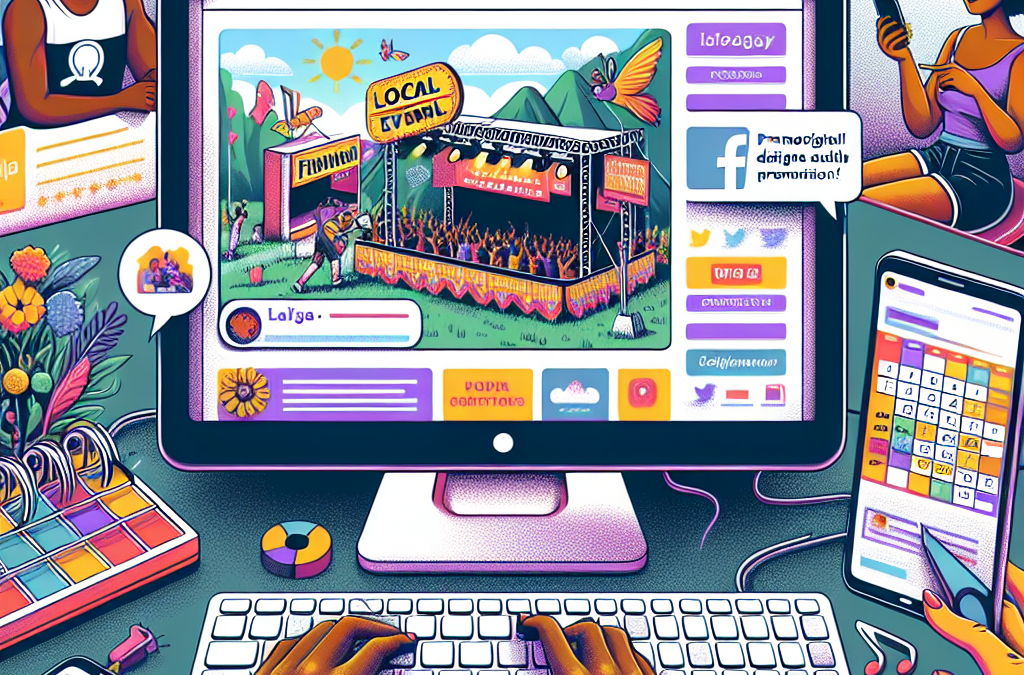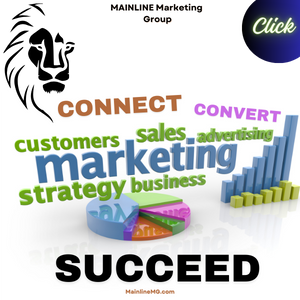Building a Strong Online Presence
Create a Dedicated Event Page
First things first, having a dedicated event page is crucial. This is like your digital storefront. You want to make it inviting, easy to navigate, and packed with all the info folks need. Include key details like date, time, location, and ticket info. Don’t forget to showcase engaging visuals, maybe some fun past event highlights, which totally hooks people in!
When designing this page, think of it as telling a story. Use friendly language, share what makes your event unique, and let your personality shine through! You’re not just selling tickets; you’re inviting people to share an experience. Trust me, this makes a huge difference!
Lastly, make sure this page is SEO-friendly. Use relevant keywords so that locals searching for events can find you easily. It’s all about being visible when folks are looking for something fun to do!
Utilize Social Media Platforms
Ah, social media—the life of the digital party! Platforms like Facebook, Instagram, and even Twitter are goldmines for promoting events. Start by creating an event on Facebook. It’s super easy, and it’s where many people get their event info these days. Include a compelling description and stunning visuals!
Then, don’t just stop at posting about it once. Keep the buzz going! Share snippets, behind-the-scenes action, and shout-outs to any guest speakers or entertainers. You want your followers to feel the excitement building up. Plus, engaging content often gets shared, which helps you reach new folks!
Also, consider using Stories on Instagram or Facebook—these are super effective for creating a sense of urgency a week or two before the event. You can throw in countdowns, polls, or even live Q&A sessions to hype it up. Your audience will appreciate the interactive touch!
Engage Local Influencers
Alright, let’s talk about influencers. Don’t worry; you don’t need a Kardashian-level influencer on board. Look for local personalities who vibe with your event. They likely have followers who trust their recommendations, making them powerful allies in spreading the word!
Engage them by sending a personal invite to your event, or offer them complimentary tickets in exchange for coverage on their channels. A simple shout-out or a short video can create a ripple effect, reaching potential attendees who may not have heard about your event otherwise.
And don’t forget to keep it genuine! People can sniff out a phony endorsement from a mile away. Encourage your influencers to share their authentic experiences related to your event. This builds credibility and excites their audience in a real way.
Creating Engaging Content
Share Eye-Catching Visuals
<p visuals matter—seriously! A stunning visual can speak volumes more than words alone. When promoting your event, consider creating high-quality graphics or videos. You don’t have to be a pro to make decent content; there are plenty of tools out there to help you whip up something fun and eye-catching!
Using pictures from past events, like happy faces or action shots, helps paint a picture of what attendees can expect. This creates an emotional connection, stirring up excitement even before the actual event takes place. Trust me, emotional connections are what sell tickets!
Make sure to adapt your visuals for each platform you’re using. What looks great on Instagram might not be the best for Facebook. Tailoring your content makes it more appealing and increases engagement rates across the board.
Leverage Email Marketing
Email is still an underrated tool! Building an email list of locals interested in events can be a game-changer. Share updates, sneak peeks, and exclusive early-bird ticket discounts to keep these subscribers engaged.
Craft your emails to feel personal and friendly. Add snippets of your personality while highlighting what’s exciting about the upcoming event. A little enthusiasm goes a long way! Plus, don’t forget to sprinkle in some calls-to-action to encourage ticket sales.
Send reminder emails as the event approaches, ensuring that your audience doesn’t forget the event. Consider follow-ups with a thank-you message or sharing memorable moments from the event to build anticipation for future happenings!
Collaborate with Local Businesses
Form Partnerships
Get this: local businesses can be a huge asset in promoting your event. Reach out to nearby cafes, shops, or gyms, and propose a partnership. You might exchange promotional mention or even offer them booth space in exchange for promoting your event in their establishment.
These partnerships will help you tap into their customer base, widening your reach significantly. Plus, it’s just good business to support each other in the community. I love the synergy created when we work together, and it often leads to new friendships too!
Always keep the mutual benefits in mind. This isn’t just about you; it’s about creating win-win scenarios that uplift the entire community. Trust me, this approach fosters loyalty and can lead to long-term collaborations for future events as well.
Cross-Promote Events
If you’re running a series of events (or presenting events alongside others), do some cross-promotion! You can either feature each other’s events on your platforms or have a shared event listing. This way, you’re introducing your audience to new experiences, and the same goes for the other parties involved.
Consider creating a calendar that highlights upcoming local events. Share this on social media channels, and don’t forget to tag the other events involved. This builds a spirit of collaboration—and who doesn’t like teamwork?
It’s also a fun way to engage your audience—you might find them attending more local happenings than they initially planned. And who knows? You can help create a more vibrant local scene when we all work together!
Measuring Success and Adjusting Strategies
Track Ticket Sales and Attendance
Once the event is done, take time to analyze how many tickets were sold and how many attendees showed up. This is super valuable data that helps gauge your event’s success! Create a simple spreadsheet to jot down the numbers, exploring patterns in ticket sales over time.
Was there a spike in sales right after you launched a social media campaign? That’s a sign your strategy worked! Or maybe attendance was low but ticket sales were decent—this insight can guide your decisions for future events.
Always look for ways to improve. The best part is that every experience teaches you something new, helping to refine your promotional strategy for the next round. Remember: it’s all about learning and growth!
Collect Feedback from Attendees
So, here’s the thing—feedback is a goldmine. After your event, reach out to attendees and ask for their opinions. You can use simple surveys sent via email or social media to gather insights. Ask what they loved, what they’d change, and how they heard about the event.
This not only shows you care but can also provide insights into what worked and what didn’t. Plus, attendees appreciate being part of the conversation—it’s a great way to build a loyal community.
Keep an eye on trends in the feedback. If multiple people mention needing better seating arrangements or wish a particular musician had played more songs, consider this for your next event. Being responsive to your audience makes them feel valued!
FAQs About Promoting Local Events Online
1. What is the first step in promoting a local event online?
The first step is to create a dedicated event page that showcases all the essential details, visually appeals to your audience, and is optimized for search engines.
2. How can social media help in promoting local events?
Social media allows you to reach a larger audience by creating engaging content, inviting people through events, and sharing updates to keep the excitement alive.
3. Why should I consider partnering with local businesses?
Partnering with local businesses expands your reach and fosters community spirit as you cover each other’s events, benefiting everyone involved.
4. How important is feedback after the event?
Feedback is crucial! It provides insights into what went well and what could be improved for future events, helping to enhance overall attendee experience.
5. Can I use email marketing effectively for event promotion?
Absolutely! Email marketing allows direct communication with interested locals, and sharing updates, sneak peeks, and discounts helps keep attendees engaged.


